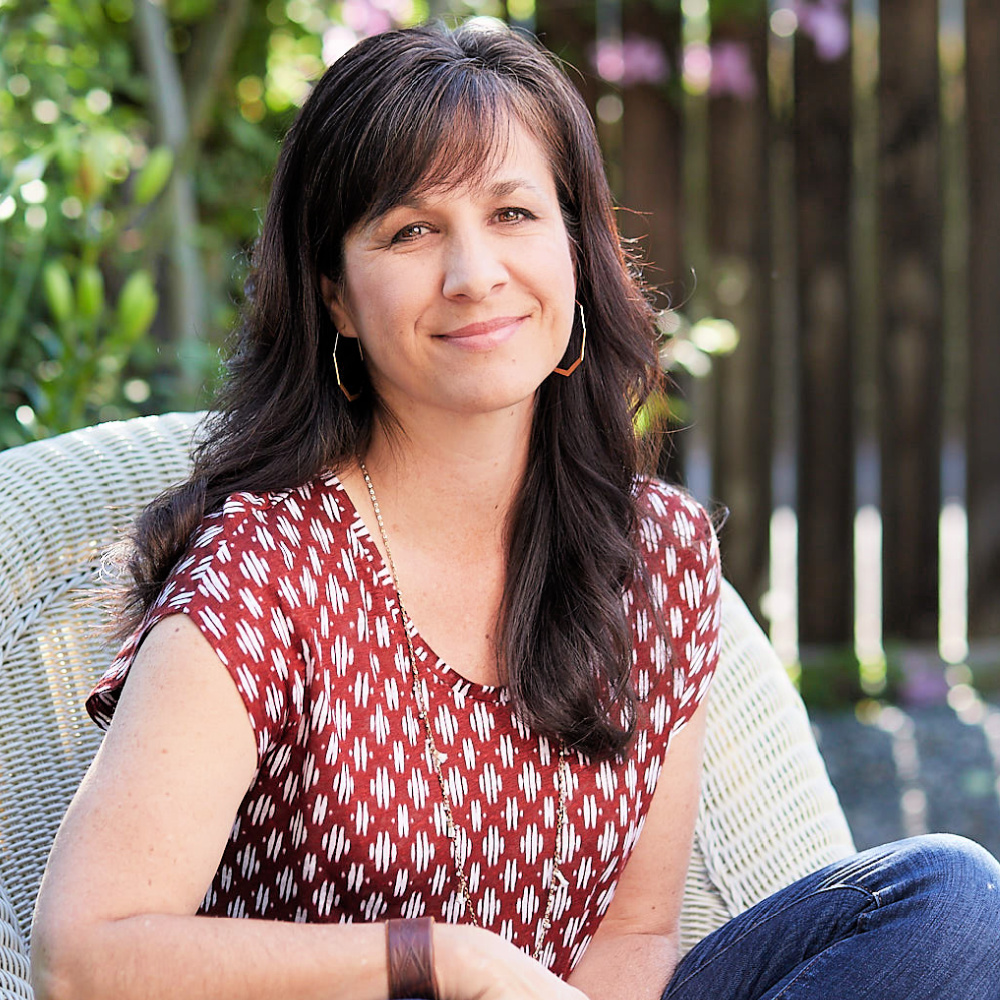3 Ways to Restore Self-Worth in Your Kids after an Uncertain Year

So much of life happens remotely now. The Pandemic removes familiar feedback we know how to process.
Relating in uncertainty can impact our sense of our self-worth. Children feel it as they experience radical adjustments in schooling formats and social connections.
How do we help children know their self-worth when they’re developing in distance learning and digital play dates?
Remote relationships have repercussions on our view of ourselves and the world around us. Students lose their motivation when waking up to meet with a Zoom group. Knowing projects won’t be shared or celebrated with peers makes inspiration elusive.
And why work hard on a college application for acceptance into more virtual lessons? Kids need a reason for making an effort in isolation.
Gallup survey results released in June 2020 report concerns of 1,200 parents of K-12 students, 97% in distance learning. 29% of parents said children were “already experiencing harm” to their emotional or mental health.
Learning now looks radically different for most children than it did a year ago.
God designed a child’s concept of self to grow gradually across the ages and stages of development. By age five children begin to play games with rules, just in time to learn to cooperate and share.
Around age seven, friends become more important, and by age ten children may develop a best friend and curiosity about the opposite sex. Feedback from peers and adults helps children learn the rules and norms of who they are.
But now, masks cover a vital source of information: faces. Distance puts children at a disadvantage in practicing how to interact with peers and people of all ages.
Remote delivery replaces much of the regular reinforcement shaping a child’s developing self-concept and self-worth. Without receiving vital information via environmental feedback with familiar rules, it’s hard for a child to construct their self-worth.
It’s more vital than ever for loving grownups to connect with children in meaningful ways. Three intentional adult practices help children grow a healthy self-worth.
1. Model Your Vision
With a broader set of input absent, a parent’s modeling matters more than ever. A loving grownup first needs to invest in their own healthy self-worth, while possibly managing their own isolation.
Self-awareness goes before ability in supporting a child’s need to know their value. By prioritizing the care and feeding of our own body, mind, and soul, we strengthen the structure of our own self-worth.
God’s word declares how he sees us as worthy of great love. “See what great love the Father has lavished on us, that we should be called children of God! And that is what we are!” (1 John 3:1a)
Loving adults can’t model a godly vision of their self-worth without first getting a godly vision of their self-worth.
When grownups wrestle with their value, it spills over onto a watching child.
Adult anxiety has a way of seeping out into parent-child relationships. Our personal perspective works either way, to influence either a distorted sense of self-worth or a godly sense of self-worth.
When the writer Paul was in a dark place, a literal prison, he invited learners to mimic him, saying, “Therefore I urge you to imitate me.” He was able to welcome the inspection, saying, “my way of life in Christ Jesus … agrees with what I teach everywhere in every church,” (1 Corinthians 4:16-17).
He could invite imitation, because he knew his own worth in Christ and lived it out, even from prison.
Paul’s modeled a strong self-worth while weathering storms of trouble in and around his life. Paul practiced contentment, transparency, and availability with his spiritual children.
Despite distance and separation, he found a way to be present in their lives, inviting them to lean in and “see” his example.
Working from home or not working at all has taken a toll on many adults. Some days the Pandemic feels like a prison. Add in distance from friends and family and separation from our usual support network, and adults have struggled to steady our own sense of self and value.
Who are we in this?
As we hold fast to our identity in Christ with life shifting around us, we have all we need to stand firm. “His divine power has given us everything we need for a godly life through our knowledge of him who called us by his own glory and goodness,” (2 Peter 1:3).
Kids notice how we navigate these shared hardships. They learn from our example as they figure out their own self-worth, sorted out inside new interactions.
Hardships have a fresh way of helping us find who we are and what we’re worth.
2. Manage Your Time
With regular means of connection missing, children forming a concept of their worth need the nearness of loving adults more than ever.
Being trapped by Stay-Home orders doesn’t always count as quality time. Being physically together falls short of filling our intimacy shaped hole.
Childhood requires the safety of close relationships to bear the fruit of a strong sense of our value.
With the time pressures of adulthood mixed with those of the Pandemic, helping our children means praying for wisdom in how we use our time.
Oh God, who created us and our children with deep, enduring value, “Teach us to number our days, that we may gain a heart of wisdom,” (Psalm 90:12).
Teenagers between ages 15-17, for example, seek identification with a group to know who they are and who they’re becoming. Many teens today feel untethered, looking to TikTok for affirmation in the emptiness.
Somewhere between Pandemic restrictions and social media no man’s land, teens find a trusted peer group out of reach.
Kids need to know they’re wanted and valued. With peer voices distant or muffled, meaningful time with trusted adults can soften the creeping sense that they’re alone because no one wants to be with them.
Children need adults to be more than just in the room. They need us to be fully present.
- Throw a blanket over a table and bring a pile of books for some “tent time” with a toddler.
- Explore interesting recipes with your school age child and cook a meal together.
- Put away your work and make a French press of coffee to enjoy with your teen.
Be present in ways that reflect the high value you and God place on your life and the life of your child. Manage your time with a heart of wisdom to show your child they are worth your time.
3. Message Your Affection
The heart of a child hungers to hear affection from the heart of their parent.
Comparing his love for his spiritual children to that of a mother for her child, Paul said his affection caused him to be “delighted to share with you not only the gospel of God but our lives as well,” (1 Thessalonians 2:7-8).
When we regularly receive messages of affectionate affirmation for who we are, rather than only what we do, we experience affirmation as God’s beloved creation.
Writer Peggy O’Mara encouraged mothers to remember, “The way we talk to our children becomes their inner voice.” Affirmation strengthens our understanding of the self-worth God wove into the fabric of who we are.
We feel loved and worthy of that love.
Perhaps one blessing of the Pandemic has been a collective pause on busy schedules we once juggled. Good things have been forced to wait, to breathe, to be reconsidered.
In the quiet spaces taking the place of appointments and practices, events and happenings, we are left to look at who we are.
Ripe is the ground for tending our self-worth and that of our children.
Children need to have their questions answered to inform the shaping of their self-worth. “What’s my value, mama?”
“How much do I matter, daddy?”
“Will I always matter?”
Nothing changes our purpose in childhood or adulthood, whether in times of peace or times of pain, “For we are God's handiwork, created in Christ Jesus to do good works, which God prepared in advance for us to do,” (Ephesians 2:10).
The ears of our children strain to hear us affirm who they are and who they’re becoming as the handiwork of God. Find powerful words of affirmation to speak into your children's hearts in this article!
Parents hold simple, powerful keys to guiding children on their journey of finding out their life is of greatest value.
- Make eye contact often, and let it linger.
- Touch warmly to convey acceptance and closeness.
- Smile generously to reveal your pride.
- Laugh unrestrained to expose your joy in your child.
- Point out character qualities that shine their inner person.
- Call out moments of greatness—empathy, compassion, diligence.
- Pray passionately aloud, so they hear how you present them to God.
If God considers the life of a sparrow precious (Luke 12:6-7), how much more valuable is his handiwork, fearfully made and knit together by his hand inside a mama’s womb? (Psalm 139:13-14).
So worthy is the life of children and adults made in the image of God that he demonstrated his expansive love by giving his perfect life for our fragile ones.
Parents hold great power. In a time when children need feedback, information, and interaction to grow their understanding of their self-worth, they look to and listen to our lives.
At arm’s length from so much they’ve known, who will step in to shape their delicate core of confidence about who they are in this fragile world?
Simple, powerful, parental actions help children gain this confidence.
When we model our own self-worth before our children, manage our time in their lives, and message our affectionate affirmation of who God made them to be, we set them up to be certain of their great value whatever comes.
Photo Credit: ©golibtolibov

Originally published October 27, 2020.





